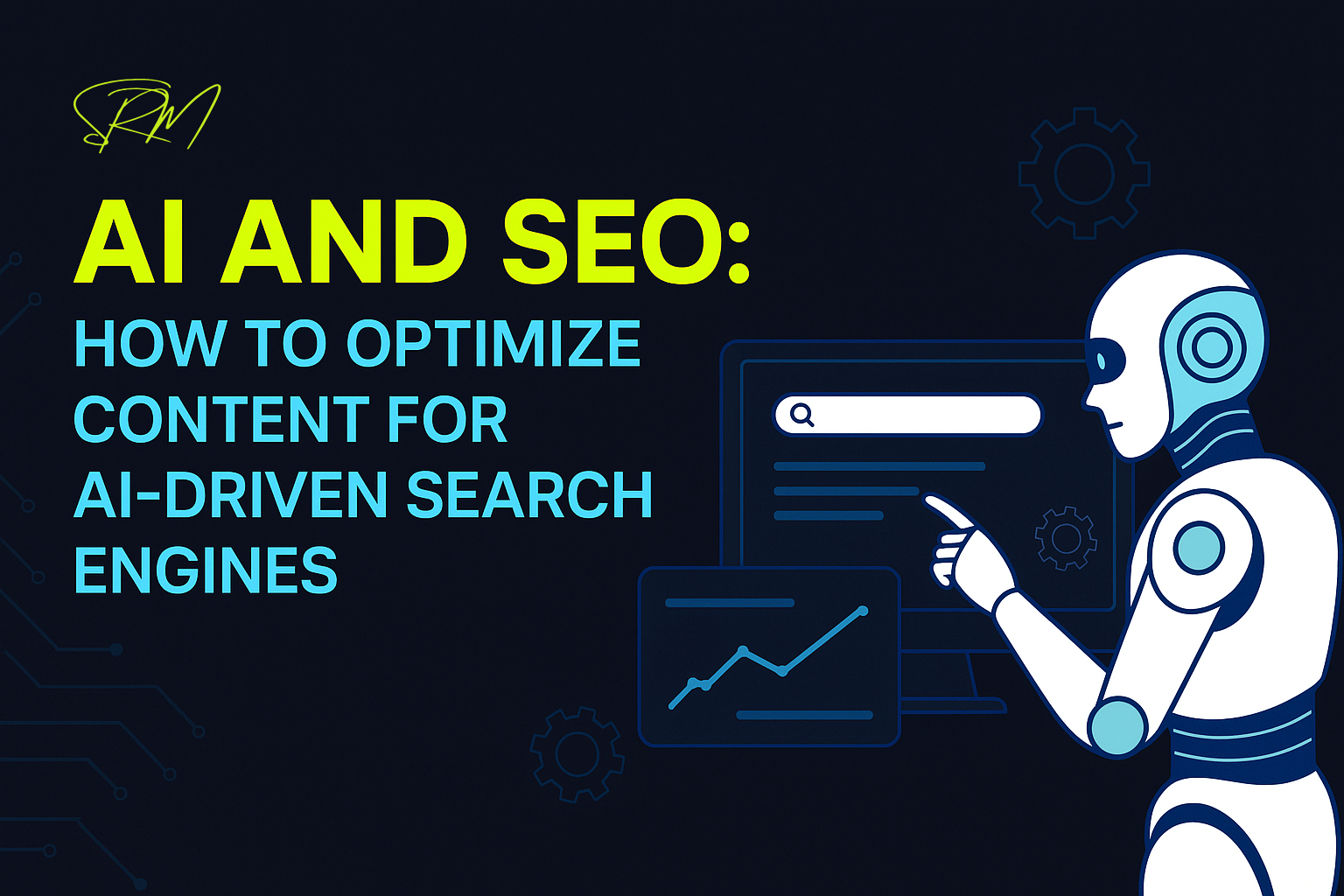
In today’s fast-paced digital world, traditional SEO techniques are no longer enough. The rise of artificial intelligence (AI) has fundamentally changed the way search engines work — and how we must optimize content. Welcome to the future of search: AI and SEO.
Whether you’re a blogger, marketer, or business owner, understanding how to use AI to improve SEO can be the game-changer your content strategy needs. In this blog, we’ll explore what AI SEO optimization really means, how AI impacts search engines, and most importantly — how you can tailor your content to rank better in this AI-driven era.
Understanding the Relationship Between AI and SEO
AI and SEO are now deeply interconnected. Modern search engines like Google are increasingly powered by AI algorithms, such as BERT and RankBrain, which analyze user intent, context, and behavior rather than just keyword density. This means that content must now be more relevant, conversational, and engaging than ever before.
Unlike older algorithms that rely on matching keywords, AI-driven search engines understand the meaning behind queries. This semantic search capability forces content creators to shift from keyword stuffing to creating meaningful, intent-driven content.
Why AI SEO Optimization Matters
When you optimize for AI, you’re not just optimizing for better rankings — you’re creating content that aligns with how users search, read, and engage.
Here’s why AI SEO optimization is crucial:
- Improved Search Accuracy: AI helps search engines deliver more precise results based on user behavior and preferences.
- Voice Search Compatibility: AI technologies power most voice search platforms, requiring content to be more conversational and question-based.
- Enhanced User Experience: With AI analyzing bounce rates, time-on-page, and content depth, quality content is rewarded more than ever.
According to SEO Expert Shiwali Ratan Mishra, “AI has shifted the SEO landscape from keyword-targeting to intent-targeting. To succeed, content must be crafted with both human users and AI algorithms in mind.”
How to Use AI to Improve SEO
Embracing AI in your SEO strategy isn’t just a trend — it’s a necessity. Here’s how to make it work for you:
1. Create High-Quality, Intent-Driven Content
Understanding search intent is the cornerstone of AI SEO optimization. Focus on what the user wants to know rather than what keywords they use.
Tip: Use tools like Answer the Public or Google’s People Also Ask to identify common user questions and build content around them.
2. Use AI Tools for Content Creation and Research
AI-powered writing assistants like Jasper, Grammarly, and ChatGPT can help generate outlines, edit grammar, and even rewrite content for clarity, boosting productivity and quality.
3. Optimize for Voice and Conversational Search
With smart assistants like Alexa and Siri becoming more common, optimizing for voice search is key. Use natural language, question phrases, and concise answers in your content.
For example: Instead of: Best SEO Tools 2025
Try: What are the best SEO tools to use in 2025?
4. Leverage Structured Data and Schema Markup
Search engines powered by AI understand structured data more effectively. Adding schema markup can help your content appear in rich snippets, featured results, and voice search responses.
5. Improve User Engagement Metrics
AI-driven algorithms assess content engagement — including bounce rate, time on site, and click-through rate. Make your content visually appealing with headings, images, bullet points, and CTAs. Don’t forget to update your old content regularly. AI likes freshness!
Best Practices for AI-Driven SEO Content – Explained
To rank well in today’s AI-powered search engines, you need more than just stuffing keywords. These best practices ensure your content is both AI-friendly and human-centric:
Write for humans first, then optimize for AI
Your content should be natural, engaging, and valuable to the reader. AI algorithms now prioritize user experience and relevance, so forced keywords or robotic writing will only hurt your rankings. Always write with the audience in mind, and then fine-tune the content for SEO.
Use long-tail keywords that reflect real questions
AI understands context and user intent. Instead of generic terms like “SEO tips,” use specific phrases like “how to use AI to improve SEO in 2025.” These long-tail keywords are often questions users ask, aligning well with voice and semantic search.
Focus on topical relevance rather than just keyword density
The days of needing to repeat a keyword multiple times are gone. AI-driven algorithms such as Google’s BERT and RankBrain assess how thoroughly your content addresses a topic, rather than simply checking for keyword frequency. Address subtopics, and related terms, and offer comprehensive information.
Keep sentences and paragraphs short and scannable
Online readers tend to skim. AI also looks at readability and structure, so break your content into shorter sections. Use headings, subheadings, bullet points, and simple language to improve the user experience.
Incorporate multimedia and interactive content when possible
AI can analyze media elements such as images, videos, and infographics to determine content value. Interactive tools, charts, and visuals enhance engagement and help with user behavior signals, which influence your SEO performance.
As Shiwali Ratan Mishra, a renowned SEO expert, says:
“Success will come to those who create content that speaks both to the heart of the reader and the brain of the algorithm.”
Tools That Can Help with AI SEO Optimization – Explained
Using AI-powered tools can boost your SEO strategy by helping with content planning, optimization, and performance analysis. Here are some top tools that align with AI SEO optimization goals:
- Surfer SEO: This tool helps you optimize your content in real time based on top-performing pages. It gives suggestions for keyword usage, content length, headings, and more — all using AI-driven data.
- MarketMuse: Great for topic modeling and building authority. It uses AI to identify content gaps and recommend what you should write about to improve topical relevance.
- Frase: Helps you generate AI-powered content briefs, optimize existing articles for semantic SEO, and even create outline drafts based on the top search results.
- SEMrush & Ahrefs: These well-known platforms now offer AI-enhanced insights, such as keyword difficulty predictions, automated content ideas, and AI-powered audit suggestions.
These tools simplify the process of understanding search intent, optimizing for user engagement, and staying aligned with how AI-driven search engines evaluate content.
Final Thoughts
AI and SEO are no longer separate disciplines — they are two sides of the same coin. As search engines continue to evolve, your content strategy must evolve with them. The key to success lies in creating content that is relevant, user-focused, and optimized for intelligent algorithms.
By following the steps above, leveraging the right tools, and staying informed through SEO experts like Shiwali Ratan Mishra, you’ll be well-equipped to thrive in the age of AI-driven search engines.
So, don’t fear AI — embrace it. The future of search is smarter, faster, and more human than ever before.





